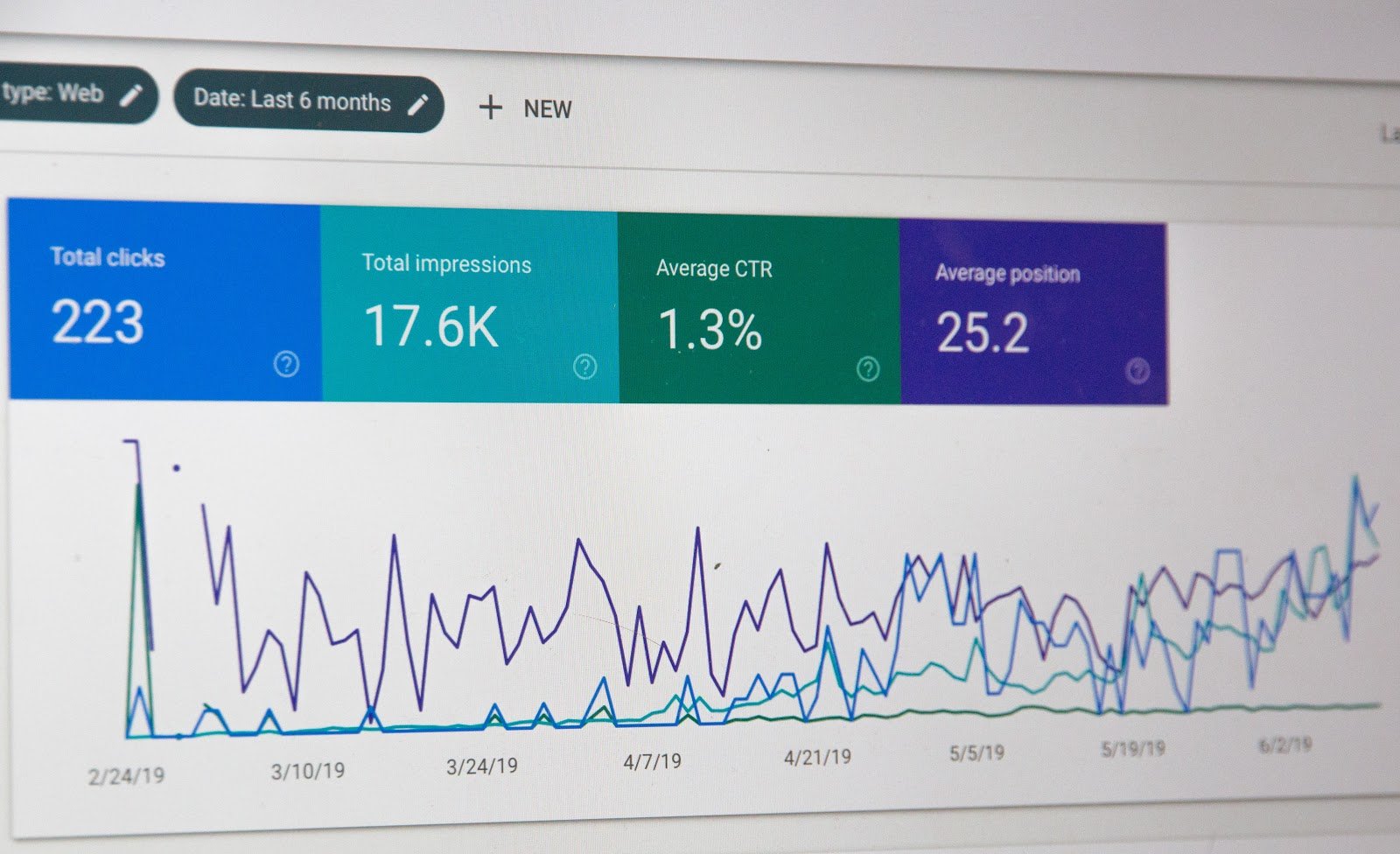It is no secret that we live in a world obsessed with SEO. In a lot of cases, quality content has become secondary to the goal of ranking first, and our focus has turned from target audiences to search engines. As a result, people lose focus of what is actually important, and also resort to some shady tactics such as Black Hat SEO. Well, Ucraft is here to save the concept of quality content! Below, we break down what is more important than search engine optimization, and also discuss the risks of shady online behavior.
What does SEO stand for?
For those of you who may be new to the ranking game, SEO stands for search engine optimization. It’s basically the art of using the right keywords, tags and descriptions to make your content more discoverable on search engines and - in the best case scenario - appear on the first page. Since approximately 90% of searches are done via Google (Business Insider - How Google retains more than 90% of market share), SEO is often mentioned in the context of Google in particular.
Sometimes, you will see paid ads at the top of the search results list, but the search results that don’t say “ad” next to them are referred to as organic listings, meaning that they got to that place by using the appropriate keywords and/or successfully answering the question at hand. In short, SEO is all about getting your content (website/page/blog) to the first page of Google, since very few people click on the second page, preferring to adjust their search criteria instead.

Lately, titles such as “Is SEO dead?” or “Is SEO still relevant?” have been trending, as more and more people start to have doubts about search engine optimization being the first priority when it comes to creating content. Although some quote-on-quote experts may claim that SEO is not important in 2019 or 2020, these claims are a bit on the extreme side. It cannot be denied that search engine optimization is still alive and well, but the extent to which people are relying on it to obtain traffic might not stay at the same level for long. “Why?” you may ask. Because SEO enthusiasts are taking it too far and putting too much emphasis on it, resulting in a myriad of problems (not to mention lost inspiration, as content writers are told to write about the most searched topics instead of the ones most interesting to them). This post in no way aims to undermine the importance of SEO - on the contrary, we seek to strike a balance between SEO and quality content, and end this battle once and for all.
Things That Are More Important Than SEO
Now that we’ve established that SEO is not the be-all and end-all, it’s time to direct your attention to things that can be more important than optimization. If you are an SEO expert/SEO specialist, you may agree to disagree, but it cannot be denied that these points are at least equally as important as optimizing your content. Make sure to keep this in mind the next time you write a blog post or update your website.
Quality Content
Even if you flood your content with multiple keywords, people are not going to read it if it’s low-quality. This is a mistake many people make when they are too focused on SEO; instead of producing genuinely good content, they direct their focus towards using as many keywords as possible and the whole text ceases to make sense.
The content should be well-written, engaging and answer the reader’s question. If it doesn’t abide by the following points, readers will click off just as fast as they clicked on, resulting in a high bounce rate. Keywords are important, but overusing them is a writer’s sin. Instead, focus on the quality and meaning; you are writing for real people, not the Google bots.
Spelling and Grammar
Let’s go back to school for a minute. Remember when you would write an essay and the teacher would hand it back with corrections, fixing your spelling and grammar? Well, this was done for a reason - to emphasize the importance of quality writing. Although this seems like such an evident moment, you’d be surprised at the amount of online content that suffers from typos, mis-spelled words, bad punctuation and grammatical errors.
Try and hire a content writer with native or near-native English knowledge, and if you can’t - there’s always spellcheck and Grammarly. A good way to avoid these issues is to proofread the text, and then ask someone else to proofread it for you and fix any errors. Voila!

Layout
You may have the perfect content, ideal spelling and grammar and all the trendiest keywords, but none of that matters if your content is uncomfortable to read. Some common issues with layout include text size (too small or too big), spacing (too much or too little), a heavy amount of text, hardly any media and so on. Your writing shouldn’t be the only thing that’s high quality; your content should be as easy on the eyes as it is on the brain. Make sure your text is the appropriate size, the spacing is equal and there is a good balance of text and images.
User Focus
As we mentioned above, try to avoid writing only for search engines and make real people your readers. Think about what readers want when they click on your posts, and whether they get the information they were looking for. Findability is also an important factor to consider - does the reader need to scroll through several paragraphs of text in order to get to the main point? If so, reconsider the structure of your post; you don’t want readers clicking off in frustration.
Web Design
Web design is an aspect that is sometimes overlooked, especially in the case of blogging platforms. Ironically enough, some of the best content is often on the most outdated-looking websites, and - since humans are visual creatures - we may click off instantly without even beginning to read. In this day and age, you don’t need to hire a team of coders and designers to create a professional, aesthetic website. Website builders like Ucraft offer a variety of affordable templates to suit your site category and taste, so go ahead and get crafting.
Loading Time
Loading time is also important to consider; we live in a very fast-paced era, and only a small percentage of people will be willing to wait for your unresponsive site to finally load. Moreover, this will also have an effect on your SEO, since Google doesn’t promote websites with slow pagespeeds. There are a variety of ways to increase pagespeed, and lots of information available online which you can obtain via a quick Google search. To make things easier, we have listed some of the main ones below:
- Check your site speed using tools such as GTMetrix
- Enable page caching, which will allow your website to load much faster after it has been opened once
- Compress your images with tools such as TinyPNG
- Remove unneeded plugins
- Choose a good host
- Choose a content delivery network (CDN), which is a system that speeds up the delivery of your content during internet “rush hours”
So choose the best blogging platform or CMS that has proven to be optimized for page load time and get creating - it’s pretty fun.
The Dangers of Black Hat SEO
Although crappy content is an undesirable result of the SEO obsession, there are things much worse than that. In this section, we will introduce you to Black Hat SEO. Sounds threatening, doesn’t it? Well it is. Black Hat SEO practices not only create unfair competition, but they are also penalized by search engines when caught. If you think of the internet as an old western cowboy movie, people using Black Hat SEO practices are the underground criminals; they might be winning at the start, but they will be caught in the end.
So, what is Black Hat SEO? It’s the violation of search engines’ terms of service in order to increase the page ranking - i.e. make your content rank higher on Google. Although it’s not illegal, your site or page will most probably end up getting banned, especially since Google has decided to crack down on such shady behavior. Many people use it as a short-term method to gain success, but Black Hat SEO is very likely to backfire and result in a permanent ban. It is also not very ethical, and is technically cheating; engaging in such practices is not exactly going to encourage respect towards your site/blog/business.

Main Black Hat SEO Techniques:
- Keyword stuffing: when you fill your content with too many keywords. As a result, the text stops making sense.
- Redirecting: sending the reader to a different URL than the one they initially wanted to view.
- Cloaking: showing a different piece of content to search engines than the one you show to users.
- Duplicate content: writing almost identical versions of the same content to try and manipulate search rankings by using the same keywords over and over again.
- Spamming backlinks: persistently spamming other blog comment sections with links to your content, or getting into backlink trading and paying for them.
- Link farms: sites created solely for the purpose of link building. They are not legit websites.
The methods mentioned above are often used as short-term solutions to manipulate search rankings, but Black Hat SEO is definitely not sustainable. More often than not, you will be banned from search engines - particularly Google - in a matter of days. By using such techniques, you are not considering what makes a good website, or how to create quality content, so your reputation will also suffer.
As you may have guessed already, the opposite to Black Hat SEO is White Hat SEO. These search engine optimization techniques may take a longer time, but they will result in your website being respected both by users and search engines. The aim of this post is not to teach you SEO, but if you do want some (uncontroversial) tips and tricks, check out these blog posts:
SEO 101: Killer tips for beginners
SEO: Make search engines love your website
Common SEO mistakes killing your online visibility

Use, But Don’t Abuse
Search engine optimization is important, but it’s not as important as many people think. Quality content is - and always will be - the top priority. Ironically enough, focusing on providing quality content instead of putting SEO first is likely to increase your ranking on Google, and not vice versa. Take a step back and think about who you’re writing for, and who is your target audience. Does the content you’re producing appeal to them? Does it answer their questions? Is it teaching them anything? If the answer is “no”, maybe reconsider your strategy. Search engines themselves have been cracking down on quality, and they don’t want to highly rank pages written purely for bots. In any case, a high search engine ranking is useless if your content is not up to par, so we highly recommend taking our tips into account.
And if you still want to use Black Hat SEO techniques, have fun in jail. No, we’re only joking. But still, don’t use them.

